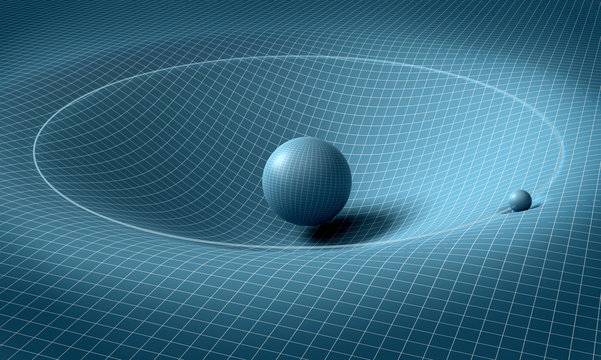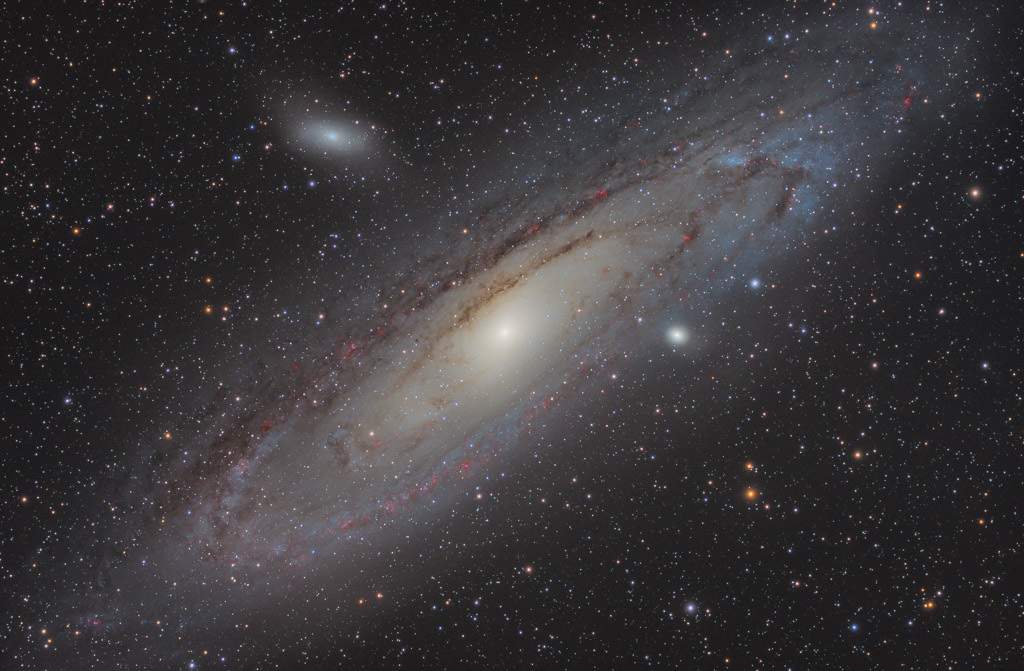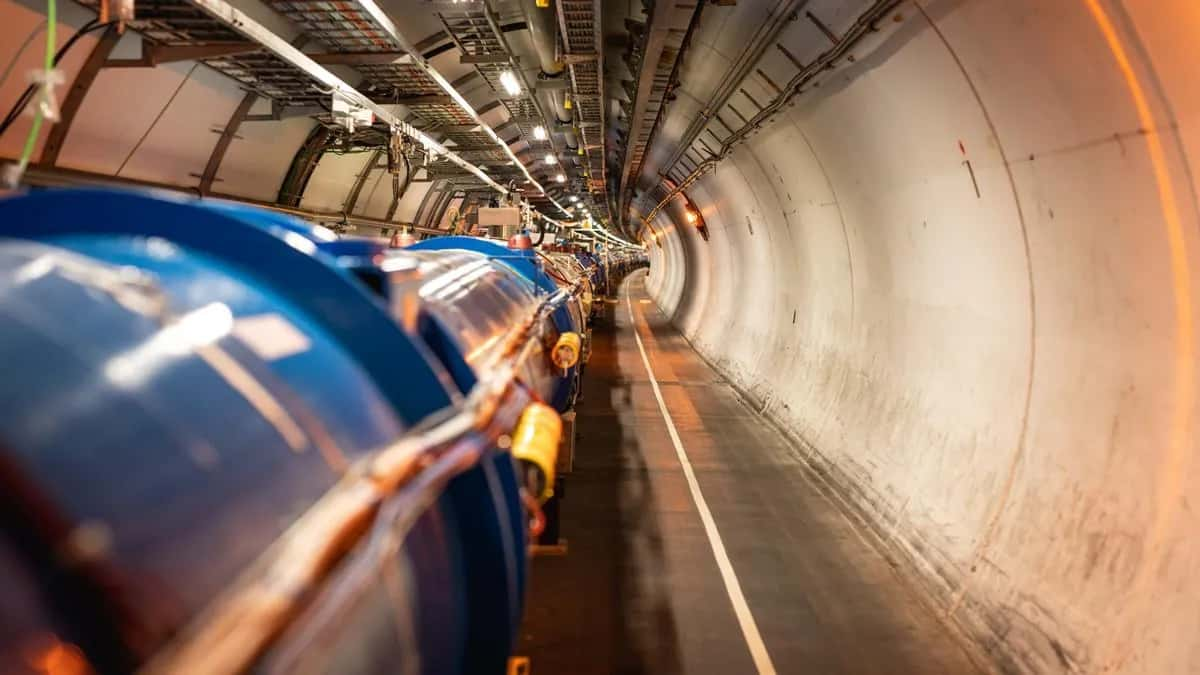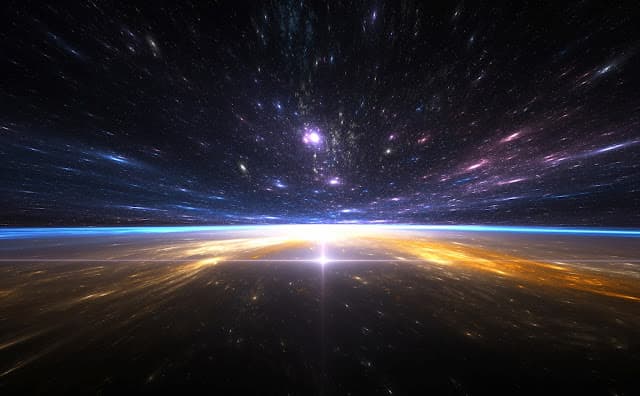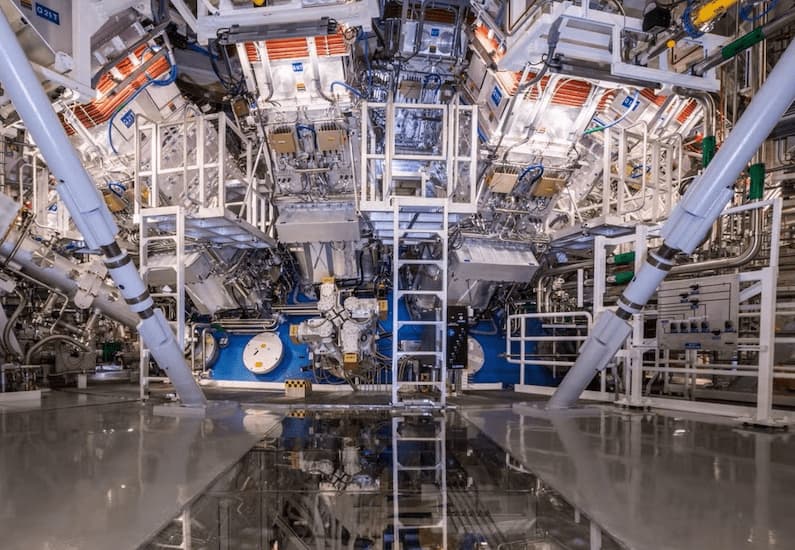If special relativity gave us an overview of the structure of space-time, with general relativity, Einstein redefined gravity with geometric theories.
Gravity and space – time
Until the theory of general relativity was proposed, everyone believed in Newton’s law of universal gravitation, which held that gravity was just an invisible, ordinary force. But Einstein didn’t think so, arguing that what we call gravity is actually a warping of spacetime, caused by the presence of matter and energy.
You can think of spacetime as a rubber curtain and if you drop any object into it, the rubber screen will bend and if the object has more mass, the rubber screen will bend. more. So the curvature of the Sun is what makes the planets constantly fall toward it, but each planet has an orbital velocity just enough to help them move around instead of flying directly into this star.
The consequences arising from general relativity are many but relatively complex, so we will only learn about the two closest and easiest to understand consequences arising from general relativity!
Fascinating time dilation
The first consequence of General Relativity is gravitational time dilation: objects subject to greater gravity will slow down time. Imagine: A is an astronaut and is working near a black hole, B is a person living on Earth, because the black hole exerts a much larger gravitational force on A than the Earth exerts on B. so A’s time will pass slower than B’s.
More realistic: according to researchers, after 4.54 billion years old, the Earth’s core is about 2.5 years younger than the Earth’s crust because of the larger gravitational force at the center of the planet.
The universe is constantly expanding
The Universe we live in is not static as Einstein thought at first. It is in fact constantly expanding relative to Earth with a constant of 67.4 km/s/Mpc where Mpc is a unit of length in astronomy with 1 Mpc = 3.26 million light years. This means that the farther away the objects are from Earth, the faster they leave.
Wait, if the planets are far enough away from the Earth then the celestial objects will move away faster than the speed of light, does this still hold true for special relativity that no matter can surpass the speed of light? shining?
It is true that special relativity limits the speed of things in space, but it does not limit the rate of expansion of the universe. This means that space expands at the speed of light and does not affect the individual velocities of each planet, so in theory this should still be true.
- Artificial muscles – New potential for humans
- How To Build An Emergent Spacetime In The Laboratory
- Brɑᴠe Mɑmɑ EƖeρһɑᥒt Fiɡһtѕ Off Ferᴏᴄiᴏᴜѕ WiƖd Dᴏɡѕ tᴏ Prᴏteᴄt Her Preᴄiᴏᴜѕ CɑƖᴠeѕ
- Protons fix a long-standing issue in silicon carbide electronics
- Finding the mammoth carcass and the process of reviving ancient elephants

